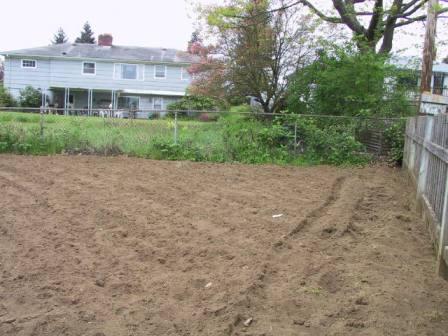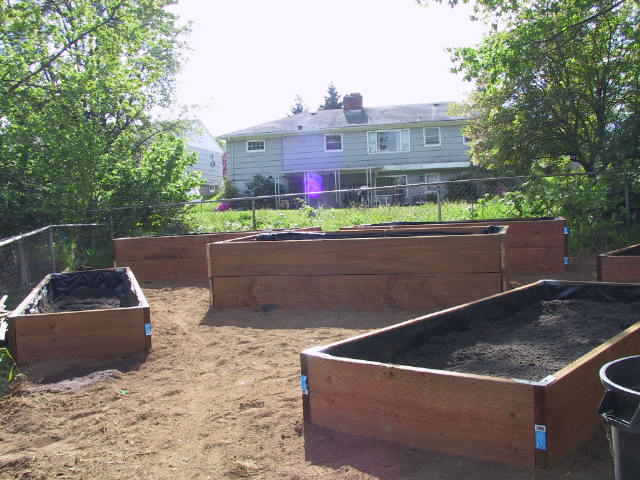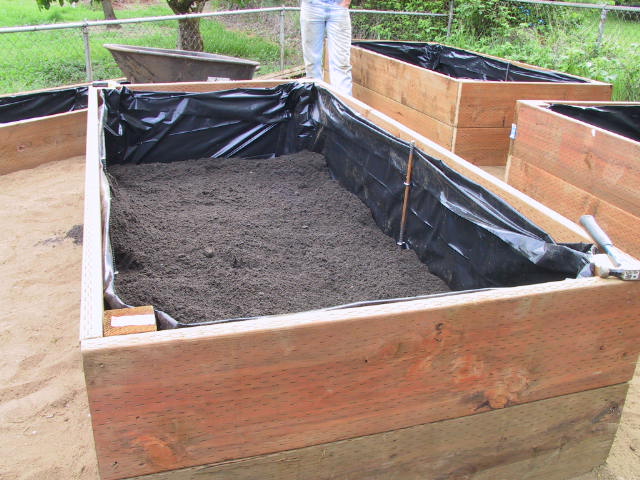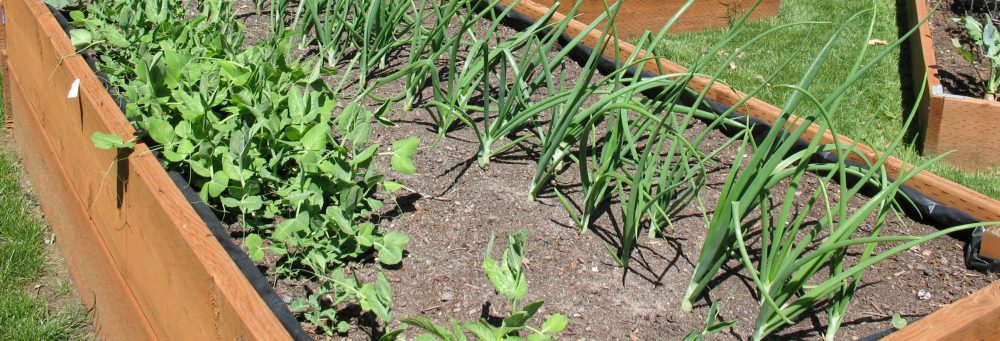I am lucky enough to have wonderful sandy loam native soil where I live, but that didn't help much when I decided to put in permanent raised beds.
In The Beginning, before construction

The Blank Canvas
Originally I thought we would be able to use the soil in the garden to fill the beds but that proved to be impractical. So we ended up hauling in 12 yards of a mix from a local garden supply store made up of composted steer manure, peat moss, composted forest products and sand.
The New Raised Beds

The raised beds are large, three are 1 ft tall x 3 ft wide by 8 ft long, and three are 2 ft tall x 4 ft wide and 8 ft long.

Half full of topsoil and compost
Wrong! It turns out that I had so much organic material that all the nitrogen in the soil was busy breaking down the organic stuff. That first year my plants did OK but not what I had expected. My tomato plants were small without many leaves, beans and peas produced modestly and my lettuce and leafy vegetables were disappointing.
I knew there was something going on here, so the next spring I sent a soil sample off to A&L Western Agricultural Laboratories. For about $30 I received a detailed soil analysis. I wasn't sure what the results were telling me so I called them and spoke to a wonderful guy named Darcy. He explained that I had such a high % of organic material (22%) that there was little nitgogen available for my vegetables as it was all being used up by the process of breaking down all that organic material that I had so lovingly added to my new raised beds.
So I added more available nitrogen in the form of fish meal and water soluable fertilizer for a couple of years. And now I am careful not to add too much organic material before the growing season starts. I try to add more stuff at the end of the year. That way it has all winter to break down and I am ready to go in the spring.
I also have started to add worm compost and castings from a local worm farm. Worm castings, or Vermicompost, are full of nutrients that are immediately available to your plants and don't need to break down.
